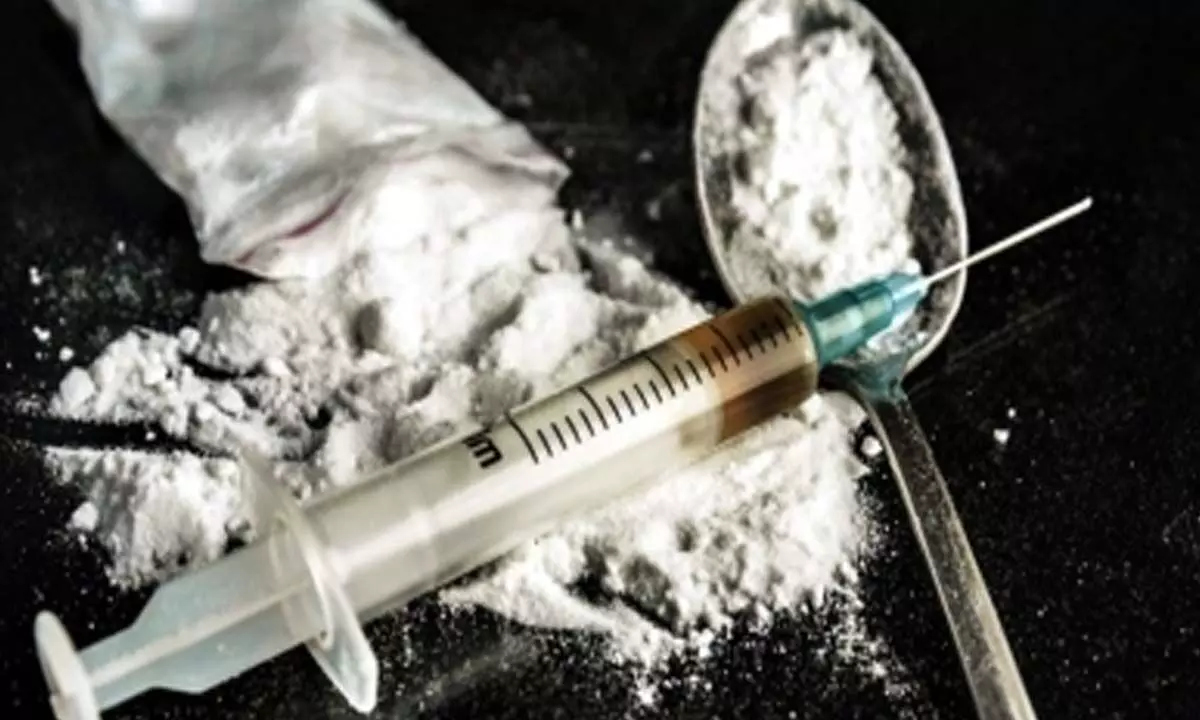How Delhi-NCR has become India’s narco trade hub

The demand for the party drug, “Malana cream” (hashish), continues to thrive in the heart of the national capital, as indicated by a recent exchange between a potential buyer and a seller.
New Delhi: The demand for the party drug, “Malana cream” (hashish), continues to thrive in the heart of the national capital, as indicated by a recent exchange between a potential buyer and a seller.
The buyer’s inquiry over a WhatsApp call, “Is there ‘maal’ available, brother?” elicited a swift response from the seller, confirming the product’s availability upon the payment of Rs 4000 and the booking of a delivery person.
Despite the Delhi Police’s concerted efforts to dismantle inter-state drug rackets for supplying narcotics substances across the city, the roots of the drug trade seem to persist within Delhi itself.
The popularity of “Malana cream” among consumers underscores the persistent challenge faced by the law enforcement agencies in curbing the illegal drug trade.
The exchange between the buyer and seller highlights a concerning trend, revealing that the narcotics trade remains active, with transactions taking place through discreet channels.
The ease with which the conversation unfolded raises questions about the effectiveness of the ongoing law enforcement initiatives to eradicate such activities.
While the Delhi Police have reported successful crackdowns on various inter-state drug rackets, the continued availability and demand for substances like “Malana cream” suggest that more comprehensive measures may be required to address the roots of the issue within the city.
Himachal Pradesh’s ancient Aryan village of Malana is known the world over as a haven for those looking for a high in the hills. An oily and aromatic strain of hashish called Malana cream is considered to be the purest form of hashish and is derived by the locals from the cannabis grown illegally in the surrounding Parvati Valley. The international popularity of the drug brings thousands of tourists to the village. The economy of the area has boomed following the explosion in the demand for Malana cream.
Recently, the Delhi Police had arrested three men, including two foreign nationals and a kingpin and seized around 63 kg of fine quality hashish worth more than Rs. 30 crore in the international market.
Hashish, sourced from Nepal, has made its way into Delhi, signalling a noteworthy increase in cross-border smuggling and consumption, not limited to Malana cream alone.
A senior police official said that the recent seizure of hashish suggests that the smugglers are mostly using cars after making a special cavity to smuggle drugs from Himachal Pradesh or Nepal.
According to a recent survey conducted by the anti-narcotics task force (ANTF) of the Delhi Police, Jama Masjid, Madangir, Chhatarpur, Hazrat Nizamuddin, Uttam Nagar, Taimoor Nagar, Nand Nagri and Majnu Ka Tila are among the “64 hotspots” identified by the cops for peddling narcotic substances.
The survey also revealed that heroin, hashish and cannabis are the most commonly sold drugs in and around the Capital.
The internal survey, carried out in March, aimed to identify areas where drug peddling was prevalent. Based on on-the-ground information, trends in contraband seizures, and the arrest of individuals involved in drug supply and sale, the ANTF officials identified 64 such hotspots across Delhi.
The peddlers are now also delivering the drugs to the “doorstep” exploiting the delivery apps without their knowledge.
This is evident after the Crime Branch in December claimed to have busted an inter-state drug cartel supplying narcotics to students in the city and its peripherals through delivery services like Porter, We-fast among others.
The accused was in touch with his clients through social media platforms like Whatsapp, Instagram and Facebook at various universities. “He took orders from his clients on these platforms and delivered through delivery services like Porter, We-fast etc. He took money through UPI in his bank accounts,” said the Special Commissioner of Police (Crime Branch) Ravindra Singh Yadav. The revelation poses a new challenge for law enforcement agencies striving to curb the illicit drug trade and protect vulnerable demographics from its pernicious influence.
(Shekhar Singh can be reached at [email protected])








